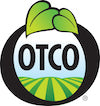Excessive Vitamin Intake Unhealthy, Scientists Say

Opting for a vitamin-enriched sports drink, juice or energy bar might not be in your best interest, a recent study finds.
According to the New York Times, many nutrition scientists say they are “concerned” over the added nutrients, even though they may be occurring in small amounts. That’s because most people are already getting nutrients in their diets through food. Combine a multivitamin to the equation, which millions of people take daily, and there may already be an excessive amount of nutrients in the diet. And that’s before adding enhanced foods.
“You have vitamins and minerals that occur naturally in foods, and then you have people taking supplements, and then you have all these fortified foods,” Mridul Datta, an assistant professor in the department of nutrition science at Purdue University told the Times. “It adds up to quite an excess. There’s the potential for people to get a lot more of these vitamins than they need.”
And according to research, notes the Times, “the average person is exposed to unusually high levels of vitamins and minerals. Already, more than half of all adults in the United States take a multivitamin or dietary supplement. Bread, milk and other foods are often fortified with folic acid, niacin and vitamins A and D.”
In a study published last summer, researchers concluded that many people are exceeding what the Institute of Medicine deems as “safe limits” of nutrients.
“Particularly concerning, experts say, is the explosion of beverages marketed specifically for their high levels of antioxidants, like Vitaminwater, POM Wonderful, Naked Juice and many others,” reports the Times. “The body requires antioxidants to neutralize free radicals that can damage cells and their DNA. But it also uses free radicals to fight off infections and cancer cells, experts say, and when antioxidants are present in excess, it can throw things out of balance.”
What’s perhaps most alarming about the fortified food and beverage market is that in most cases, the nutrients being added to foods are those that are already abundant in the diet—the ones we get the most of already on a healthy diet—like vitamin C and B vitamins.
While enriched foods might be appealing for a number of reasons, they’re also often more expensive than whole foods where vitamins, minerals and other nutrients are naturally occurring. So stick with a well-balanced diet rich in healthy fruits and vegetables, legumes, beans and grains, and organic meats and dairy products and skip the expensive vitamin waters. Your money can be better spent elsewhere!
Image via dpstyles
Leave a comment
Comments will be approved before showing up.


